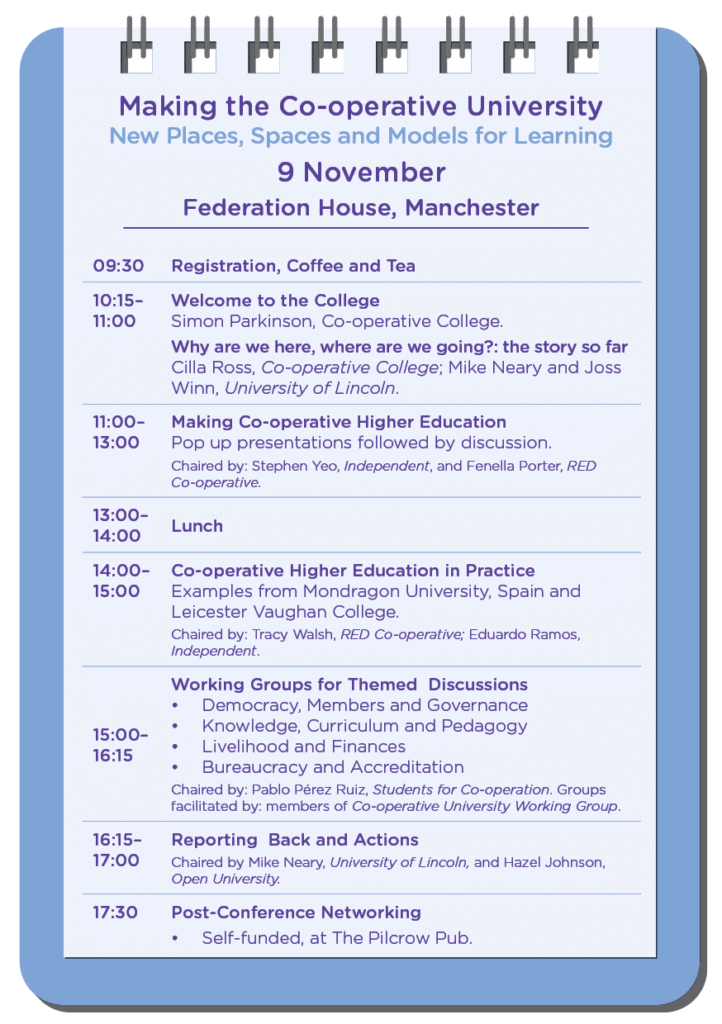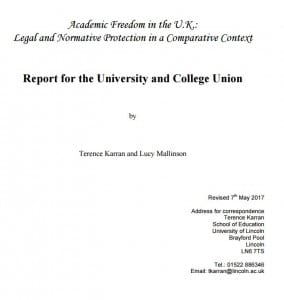Dr Joss Winn has recently written an opinion piece for the Times Higher Education website, reporting on the recent conference, Making the Co-operative University. In part, the conference builds on research that Joss and Prof. Mike Neary have been undertaking into co-operative higher education since 2010.
“Last week, the Co-operative College, established in Manchester in 1919, hosted a conference on ‘Making the Co-operative University’ with the intention of exploring its role in supporting and co-ordinating a federated model of co-operative higher education.
Throughout the day, there was a sense of anticipation and historic responsibility among the 90 delegates who were told that in 1909, W. R. Rae, Chair of the Co-operative Union educational committee, had addressed the Union and stated that “What we want and seek to obtain is a co-operative journey that will end in a co-operative university”. Writing at a time when there were only 15 universities in the UK, Rae saw the development of a co-operative university as another example of members providing for themselves where the State did not: “So long as the State does not provide it, we must do, as we have in the past, the best we can to provide it ourselves.””
Read the full article on Joss’ blog and further reports from the conference on the Co-operative Higher Education bibliography.

